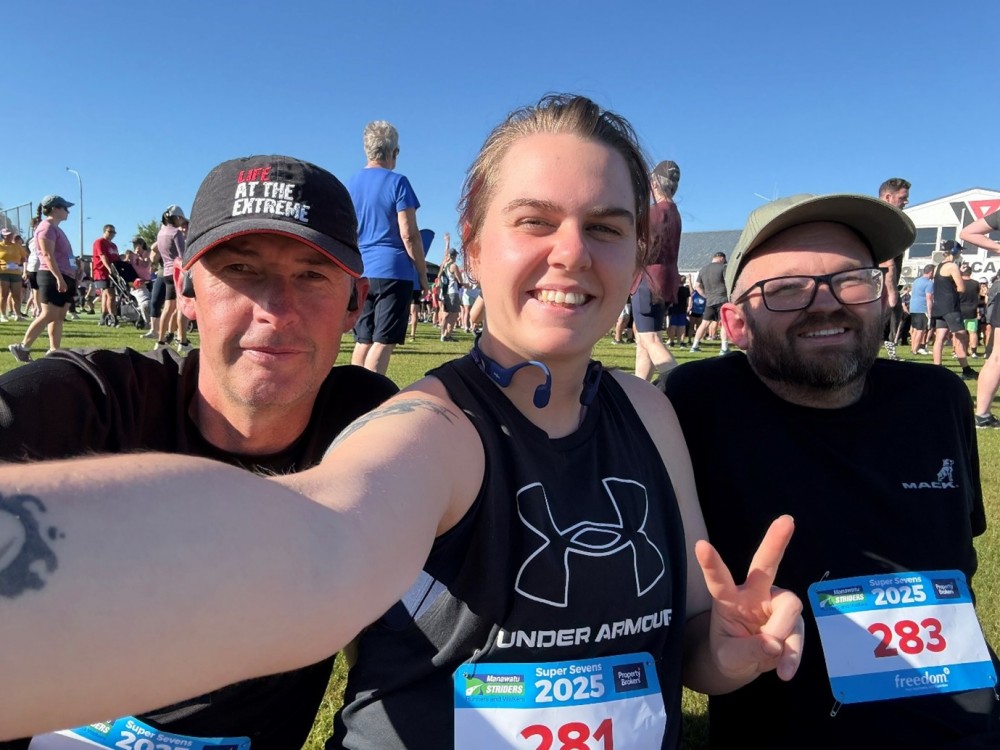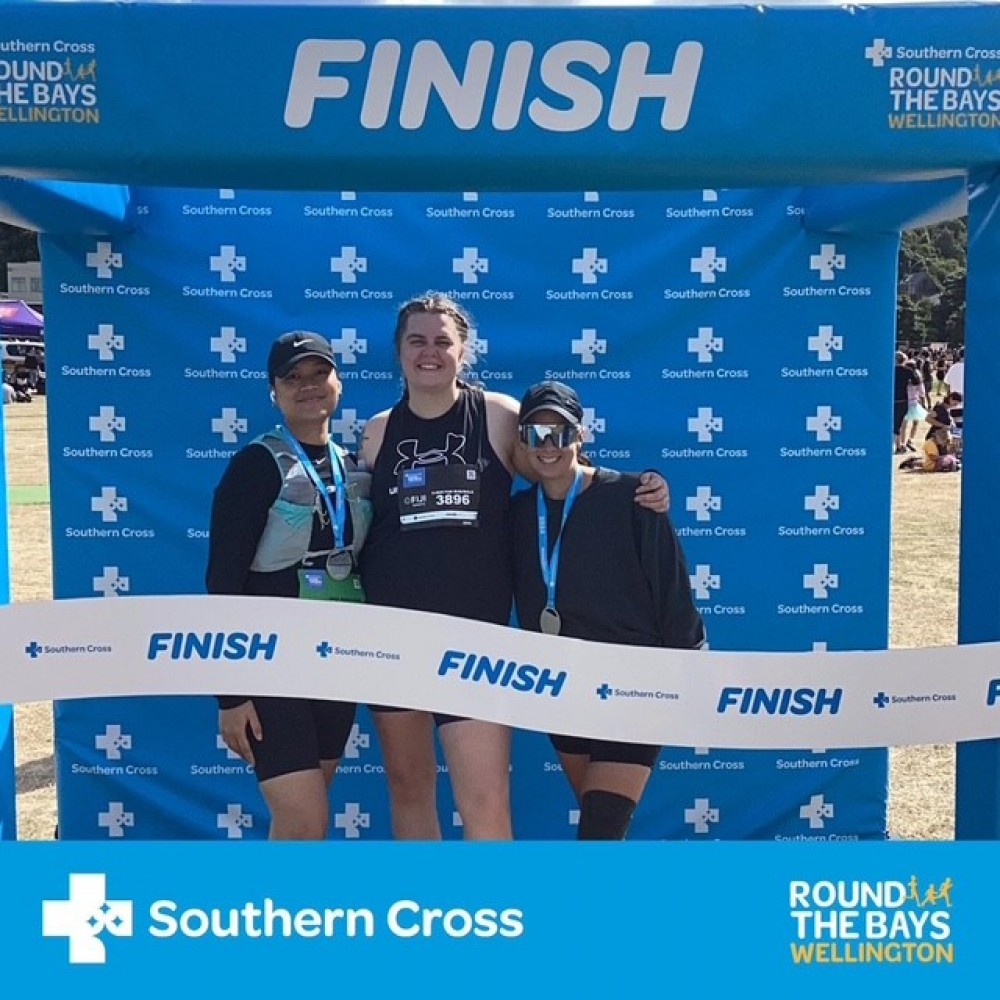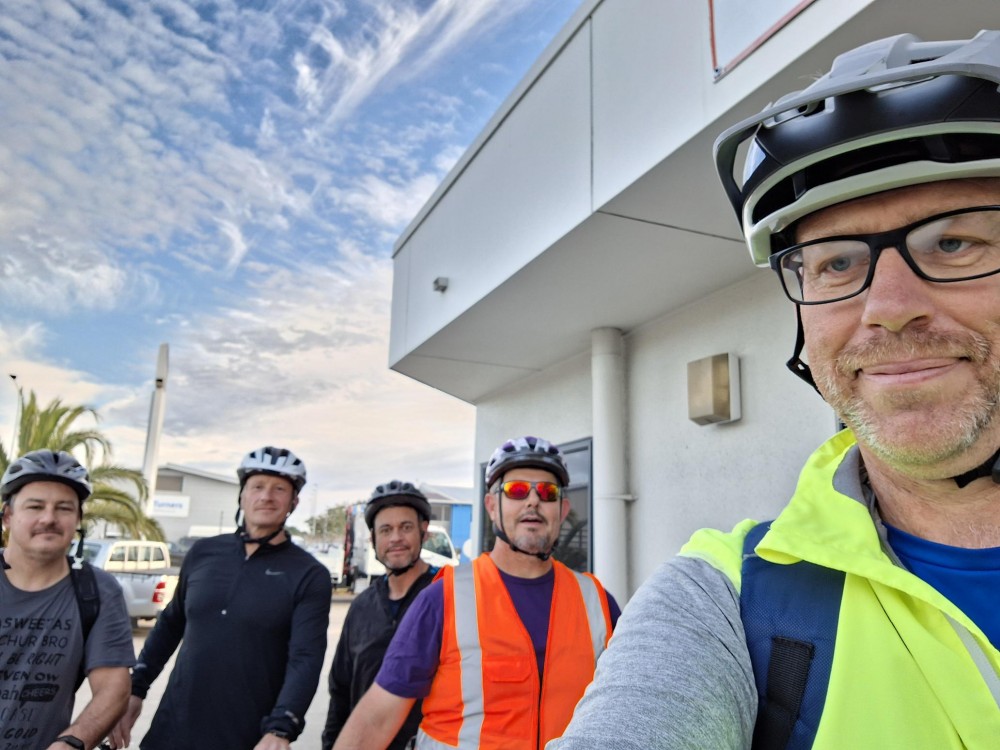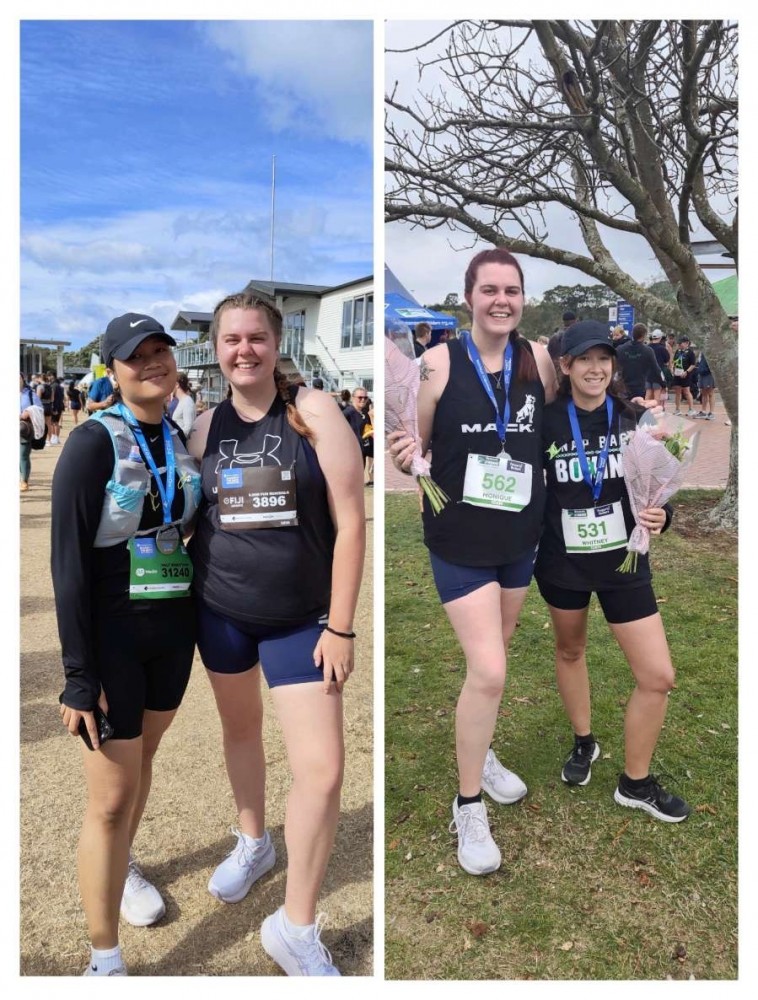It wasn’t that long ago that Monique Jones would do anything to avoid physical education (PE) classes at school.
Now, at 24, she’s looking forward to her first half marathon.
Monique’s transformation started a year ago. At her workplace, a truck parts warehouse and distribution centre in Palmerston North, her team took part in a company Moveathon challenging teams to walk the length of New Zealand, virtually. The event aimed to encourage staff to prioritise their physical and mental health.
Their parent company, Sime Motors NZ, had recently become a Major Sponsor of the Mental Health Foundation. The Moveathon was their 1,200 team members’ first big wellbeing initiative, spread across 20 businesses and 80 sites nationwide. Together, they raised $150,000 for the Foundation.


Big loss, bigger gain
For Monique, an inventory controller, the Moveathon was a chance to step out from behind her desk and get fit.
At the beginning, she could barely run 100 metres.
“I was wheezing and regretting all my life choices,” she jokes.
“I went from 100 metres to 200, then to 400, and signed up for a three-kilometre run. I finished it, even though I felt like being sick at the end.”
Since then, she has kept up the running and has lost 35 kilograms.
Monique didn’t expect her improved physical health to also boost her mental health and wellbeing.
“I had some issues last year,” she recalls.
“I felt myself sinking into bad anxiety, but when I started running, it cleared my mind and helped me zone out and gather my thoughts.”
Culture change
Monique might be Sime Motors’ best example of transformation, but she’s not alone in enjoying the Moveathon’s benefits to her wellbeing.
Nearly 71% of staff taking a company survey reported their mental health had improved since taking part in the 2024 and 2025 Moveathons. 62% of respondents also said their overall health and wellness was ‘better’ or ‘much better’ since participating. [1]
Since the Moveathon, Sime Motors’ staff have been focusing on more than just physical exercise. They’re also prioritising healthy eating, mindfulness, stronger social connections at work, good sleep patterns and taking breaks from their screens.
Sime Motors NZ Head of People Experience, Peter Leathley, says sponsoring the Mental Health Foundation has encouraged employees to focus on their mental and physical wellbeing.
“We have been delighted to see our people gain tangible physical and mental health benefits from the two Moveathon events,” he says.
“We have also benefited from the resources and support delivered by the Mental Health Foundation. These resources and support have helped to build greater awareness around how our people can improve their mental wellbeing on a daily basis.”
There are economic benefits, too. Research by the New Zealand Institute of Economic Research shows workplaces can gain $5 in productivity and other benefits for every $1 spent on organisation-wide mental wellbeing initiatives, like those at Sime Motors NZ. [2]

Wellbeing for life
Monique confirms a lot has changed at work, since the company’s sponsorship of the Mental Health Foundation.
“People care for each other more than before. If you see someone having a tough time, we speak up. We make sure they’re truly okay, even if they say they’re fine,” she says.
When Monique chats to friends about the Moveathon and other wellbeing-focused initiatives at her work, “it’s a bit of a flex,” and she wishes other workplaces were equally supportive.
Outside of work, she’s been using her new passion for wellbeing to help her younger siblings tackle any difficulties they face.
Monique has also now roped five colleagues into doing the Taupō Marathon event with her.
The road to wellbeing for Monique, it seems, is better travelled with friends.
1. Sime Motors NZ, Moveathon Wellbeing Survey. (2025).
2. New Zealand Institute of Economic Research. (2021). Wellbeing and productivity at work: NZIER report to Xero. https://www.nzier.org.nz/hubfs/Public%20Publications/Client%20reports/nzier-wellbeing-and-productivity.pdf

